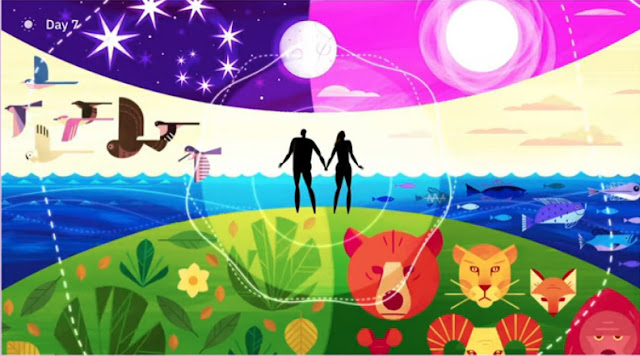“Don’t Rely on Happy Accidents”
December 30, 2020
Genesis 1:2-5
“The earth was without form and void, and darkness was over the face of the deep. And the Spirit of God was hovering over the face of the waters.
And God said, “Let there be light,” and there was light. And God saw that the light was good. And God separated the light from the darkness. God called the light Day, and the darkness he called Night. And there was evening and there was morning, the first day.”
One of the earliest marketing campaigns for Reese’s Peanut Butter cups had two strangers colliding at the corner of a busy sidewalk, their snacks crashing together. “Hey, you put your chocolate bar in my peanut butter!” “Hey, you got your peanut butter on my chocolate!” Then each smiled with delight after trying the result of their happy accident. And the world changed after that. Halloween bags and Easter baskets were improved 10x and no longer did we have degenerates walking down the sidewalk with their fist in a peanut butter jar.
Happy accidents are great! They turn our mishaps into masterpieces. But I wouldn’t want to live my life banking on them. Happy accidents are few and far between. In fact, most of the time, accidents aren’t happy at all.
When we get the chance to spend a little time in nature, whether in the mountains, at the beach, or just relaxing outside next to the garden we can get overwhelmed with the beauty of the world around us. It’s wild to me that some folks simply chalk it up to a happy accident. Creation is simply too complex to be explained without a creator, and one that knows what He’s doing.
Our first image of God in the scripture is His ordered creativity. He builds the world with His words, pulling newness and life out of nothing but His own power. The writer points out that God is measured and progressive in every step He takes. He built upon each previous day’s work and ended with His most complex, those who would be His stewards and children.
In shaping our worldview, there are three principles we can take from this passage:
- God has a plan and He works things according to it.
- God deeply cares about His creation and takes joy in it. And as the final work in creation, we receive benefits and responsibilities that the other elements of creation don’t enjoy.
- He is in control and comfortable with the complex. He is able to bring light and life out of chaos and nothingness.
So, I don’t know about you, but I’m going to put my faith in the intentional, ordered, creative and caring God of the universe instead of hoping for a few happy accidents.
Consider the passage above using the HEAR method
Highlight – what words or phrases jump out at you?
Explain – what does the passage mean?
Apply – how does the passage intersect with your life today?
Respond – how is God leading you to respond?
Jon Price, Associate Pastor
“Don’t Rely on Happy Accidents” Read More »






